From the moment your child is born, you are inundated with information on your child’s growth and whether or not they’re hitting their developmental milestones – the sets of functional skills or age-specific tasks that most children can do at a certain age range.
Comparison is often called the thief of joy, and you face it everywhere you look as a parent – from the other children in your mum’s groups, doctor’s visits, even what you’re searching online will show up again in your targeted ads and suggested content on social media – your child will be measured against others.
As if parents need more to be anxious about, or do they? We know every child is different, so it begs the question, do development milestones really matter?
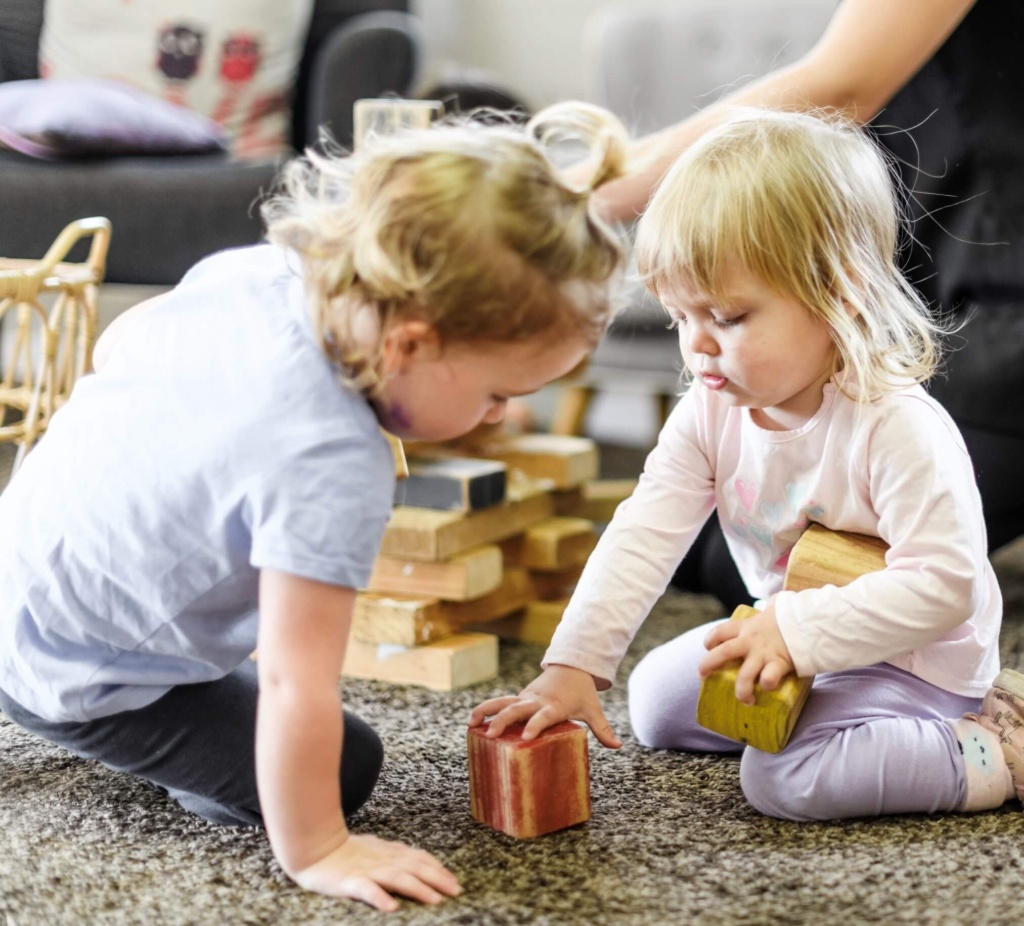
Recently in the US, Centers for Disease Prevention and Control (CDC) and American Academy of Pediatrics (AAP) updated the guidelines for child developmental milestones for the first time since 2004, aimed to better reflect the data of when children reach milestones such as crawling, walking, speech, and more, as well as some of the early indicators of autism. The changes were met with mixed reviews from parents and child experts, bringing a lot of conversation about children’s development to the forefront.
In Australia, our early childhood developmental milestones come from The Australian Children’s Education & Care Quality Authority (ACECQA)
According to the ACECQA, development milestones are important for your child’s:
So, according to experts, development milestones do matter, but with a range of abilities across each age group, when should parents take it seriously, and when can they worry less about what their child is and isn’t doing?
Children will meet these needs in their own time and are on their own journey. I always remember hearing how children meeting their development domains, can be represented like ‘popcorn kernels, when placed in hot oil, they will pop at different intervals,’ this can be seen how a child will shine and develop at different stages. – Susan Cooper, pedagogical leader, Little Scholars.
“While it is important to monitor children’s development and assess against the developmental milestones, we must be mindful not to place children in a box and begin the process of a check box system. Early childhood professionals place such value in assessing children’s growth and development and through assessment, in partnership with families, early intervention can be met for their child, should it be deemed necessary,” says Susan Cooper, pedagogical leader for Little Scholars.
At Little Scholars, your child’s development is assessed through the Early Years Learning Framework and the National Quality Standards, and is displayed through our program The Collective. Developed by Little Scholars, The Collective is a program that encompasses all aspects of Little Scholars, including our children, families, educators and community. We use it ensure that our curriculum, environments, and relationships enable children to grow and fulfil their potential, actively learn through play and engaging intentional teaching. We aim for our inspiring programs and strategic planning to contribute, influence, and shape the development of our children, educators and community.
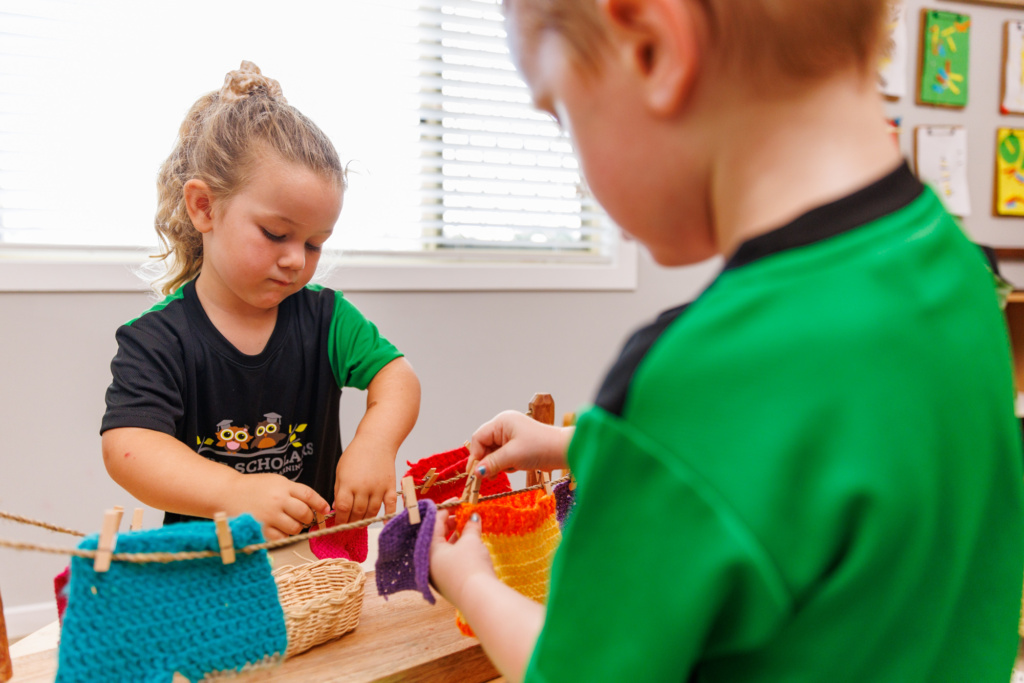
According to Skye, assistant campus manager at Little Scholars Pacific Pines, developmental milestones helps educators develop their educational programs.
“Milestones are important to monitor and keep track of as they can help us as educators and also families understand why a child may be exhibiting certain behaviours,” Skye said. “They also help gage what children’s interests, strengths and barriers are. Understanding and knowing age-appropriate milestones will help educators provide a program for each child’s individual needs.”
Your child’s weekly program evaluation and reflection informs parents of the significance of the learning experiences that have taken place over the course of the week, how those experiences tie into the Early Years Learning Framework, and include observations regarding your child’s development.
“We educate the families about the importance of milestones and when to be concerned for ‘red flags.’ I think it’s incredibly important that us lead educators are having frequent conversations about their children’s development, where they’re excelling and where they need further support,” says Holly, a lead educator in a Senior Kindy studio at our Stapylton campus.
“I have educated my families, especially during times like in my parent teachers about the importance of children meeting emotional development milestones. We also have a few Prep teachers who are parents at our campus, who have reiterated to us how critical it is for when children that go to Prep that they are able to confidently self-regulate their emotions and when to seek help, such as asking a peer for help, attempting to solve a problem themselves before asking a teacher – those kind of strategies.”
We’re here to ensure children learn and grow to the very best of their ability. Sometimes a child doesn’t meet his or her developmental milestone, and it might warrant a chat with our families about our observations. The conversation may begin by us asking the parents how they feel about their child’s development, and if they have any concerns. We’ll share what we’ve observed, and share examples of our observations – either written, photo or video. Families may become emotional throughout the discussion, and we understand how hard a conversation like this can be to digest. Please know we’ll always give time and space for our families, and we’ll support your next steps and help in any way we can.
“We do need to be guided by the developmental domains, as most children with developmental delays are not identified early enough to benefit from early intervention and they then enter their formal schooling at a disadvantage, which can set them back,” says Susan. “When we consider how much time children spend in our care and our qualified educators ability to track development through observational learning records, for parents, we are their trusted source.”
All of this might make you wonder if you can help aid your child’s development? The answer is a resounding yes!
For anxious parents who feel like worrying about whether their child is hitting their developmental milestones, Susan says while we need to be guided by developmental domains, there’s a range within those milestones.
“More often than not, families place high expectation on their children and make comparisons with others. We need to understand that children will meet these needs in their own time and are on their own journey,” Susan explains. “I always remember hearing how children meeting their development domains, can be represented like ‘popcorn kernels, when placed in hot oil, they will pop at different intervals,’ this can be seen how a child will shine and develop at different stages against another child, when the environment is supportive to learning and growing.”
We are excited to welcome Susan Cooper, our new group Pedagogical Leader for Little Scholars School of Early Learning.

Susan will support educators to guide and influence children’s love of learning by fostering family engagement, ensuring fidelity to Little Scholars curricular philosophy, using data to evaluate the effectiveness of the learning program, and ensure we are exceeding standards to optimise learning environments and prepare children for successful futures.
Through pedagogical leadership, Susan hopes to raise the benchmark to overall quality of teaching and recognises that providing children with strong foundations for ongoing learning and development is underpinned by a strong pedagogical practice.
Pedagogy is a form of teaching strategies in the practice of educating. It is the techniques, strategies and approach taken by educators to let learning and development to take place. Pedagogy refers to the interactive process between the teacher, the learner and the learning environment and provides reason to the design of learning spaces, materials, and resources on offer. Pedagogical Leadership supports educators in relating their pedagogy to content knowledge and educational theories.
Susan’s primary role will be to provide leadership to pedagogy and support educators in relating their pedagogy to content knowledge and educational theories. Susan will be working across the 13 Little Scholars Early Learning Campuses mentoring and coaching our educational leaders to implement curriculum delivery. Susan will inspire educators to employ new approaches to their teaching against up-to-date research, which will shape the quality of experiences and interactions across our campuses.

Susan has worked in the Early Childhood Sector for more than 16 years and has extensive knowledge in the field of Pedagogical Practices. Having worked in many fields within the Education sector, from operating a family day care, to being an educator within long day care sector as well as outside school hour care services, through to management and leadership.
“To take on this role is exciting as I can share my passion, influencing pedagogy approaches and practices and place emphasis on children’s play to promote continuous child development and quality outcomes for children,” she says.
Susan is passionate about advocating for children’s rights and is a firm believer of a child-centred approach and that the quality of interactions between adults and children play a fundamental role in stimulating early learning.
According to Jae Fraser, founder of Little Scholars School of Early Learning, pedagogical leadership is about leading or guiding pedagogical practice, supporting Little Scholars educators in their work with children and families, and translating the Little Scholars values and principles into practice.
Why do our children sometimes express some big bursts of negative moods after they come home from a seemingly fun day at childcare? This could be due to after school restraint collapse. Meanwhile, you expect them to come home happy and excited to tell you all about their day of crafts, books, playtime and outings, after all, you often get reports that your child was an angel all day. But when he or she comes home, that angel seems to have taken those wings and flown away, being replaced with something not so angelic.
Some child experts call it ‘after school restraint collapse’, and it seems to happen because children hold it together all day in childcare. Children use a lot of energy being well-behaved, following direction, sitting still, retaining information, and all of this without their primary attachment figures, their parents/caregivers. It can also simply be that some children meltdown because they are tired or overstimulated. Wanting to learn more about Little Scholars and how we deal with these big emotions? Contact us today.
This leaves your child’s best opportunity to release their emotions when they get to a safe place, their home. Those emotions can take the shape of crying fits, whining, screaming, disrespect or physically acting out to parents or siblings.
“I always say to parents, ‘do you have a best friend, someone you let all your emotions out when you see them? You are this to your child and when they see you after a big, busy day at Kindy, it all comes out,’” says Libby Kissell, a lead educator with our Redland Bay South campus.
“Rest assured they had an amazing day, but they let it all out when they see you because YOU are their person, their safe zone.”
Young children haven’t yet developed the essential brain wiring or had the necessary life experience to be able to calm themselves down from big feeling states, which is why they experience such frequent meltdowns. They know they can do this at home because they’re in a place where they’re loved and supported.
Your child is loved and supported by our team at Little Scholars, talk to us if you’re struggling and we can think and discuss how to make things easier for your little one.
“As an adult, we come home from a big day at work and we just want time to ourselves to zone out and not have to think,” says Holly Medbury, an educator from our Stapylton campus.
“We might even get annoyed if people want our attention, kids feel the same, but often have difficulty expressing it. Children are little people with big emotions, they too need some time to ‘chill out’ or a friend to be there and hug, with no expectations. It’s just reassurance for parents out there that they are doing an amazing job and providing useful strategies to help children cope with their big emotions.”
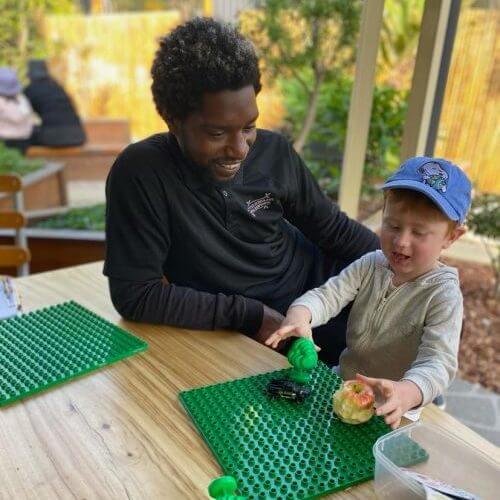
You can send them to their centre with a comfort toy or blanket that they can reach for when they need it. You could also send them with a picture of their family, or a note in their bag telling them how proud you are of them and how much you love them
Spend an extra five to 10 minutes with them before they start their day at Little Scholars. Just a few connected minutes with your child can make a significant difference in their day
Have a conversation with them on the way to childcare or when you get to their centre that focuses on what they can look forward to after you pick them up later, maybe that conversation looks like, ‘When I come to get you, would you like to go to the park or go pick out some new books to read at the library?’
Bring a snack for the trip home, sometimes hunger can be distracting for them and can stir up emotions.
When you pick them up, maybe all they need is a big reassuring hug. Maybe they need quiet. Maybe they’d like to tune out to some music they enjoy for a few minutes. Maybe they need to relax on a park bench or burn some energy at the playground. Follow their lead and take some time before asking questions about their day.
Again, feel free to talk to your educators about what’s happening at home. We have an open-door policy and we’re here for you. Your child’s educators, after spending time with your little one, may have specific ideas on how to help your child or can try to dedicate some quality time with your child to help them relax and feel cared for.
By understanding a little better why there are strong feelings coming from your child after a day of childcare, you are better armed to handle after school restraint collapse or even moderate reactions before their start.
For more information:
No matter your age, communication is an important skill. For pre-schoolers though, their ability to communicate and listen to instructions is a steep learning curve in their development. At times, it can be frustrating if an adult can’t understand what the child is saying or the child can’t use words to share what they mean. Learning effective communication is a crucial part of child development. During the preschool years, a child will have enough vocabulary to engage in simple conversations as well as share how they feel. To encourage positive communication with children, here are some powerful tips.
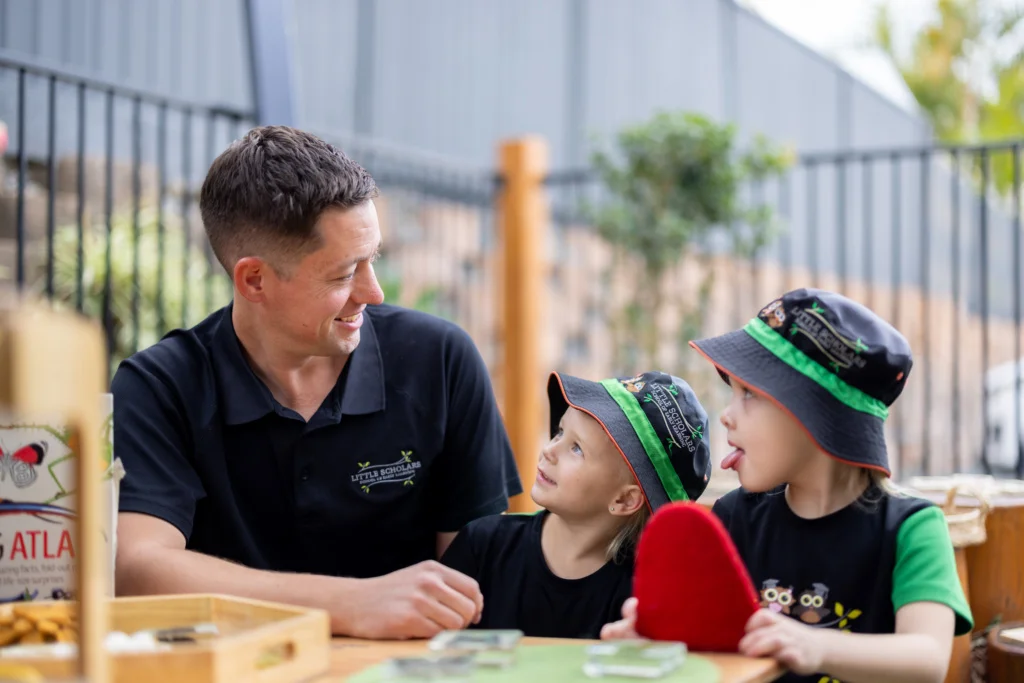
A preschool child will either share in detail what they know when re-sharing a story or they may only give basic information about the event. To keep the lines of communication open between a child and adult, rather than listen to respond, listen to understand. Your child wants to know you understand them, no matter how significant or insignificant the event may seem to you. It’s important that children feel free to speak as this can build their confidence and esteem when communicating. This can also be foundational to future conversations as the child gets older.
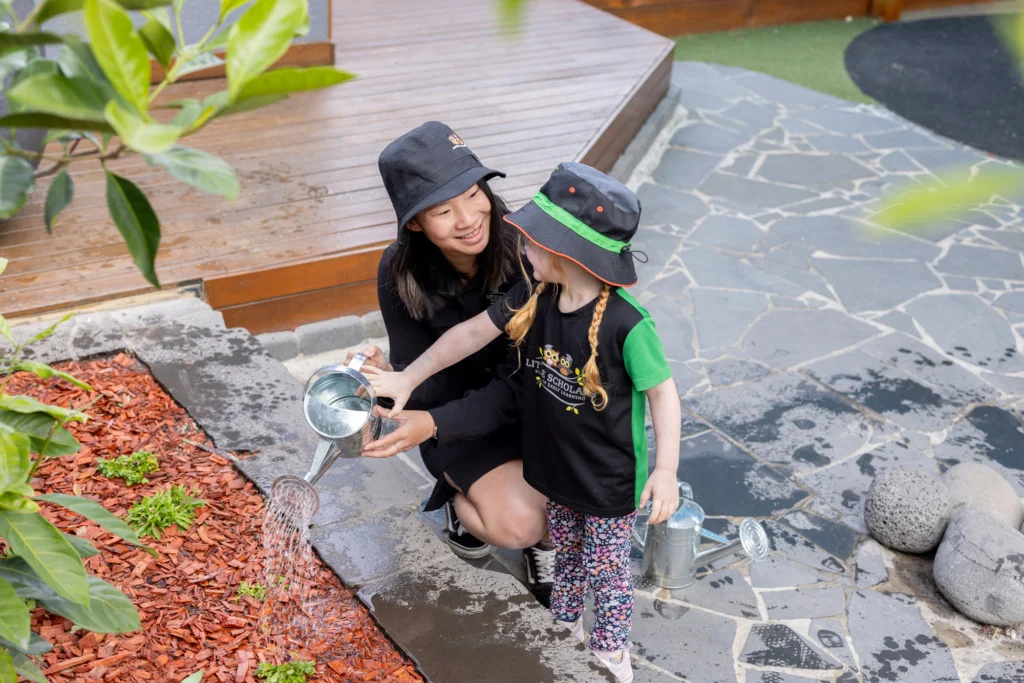
To help children feel more comfortable when communicating with you, bend so that you are at their eye level. This proactively shows you are listening to what they are saying and are paying attention. It also builds the connection between adults and children.
There will be times when challenging behaviour by the child will need to be addressed but it is important to deliver negative feedback in a way that leaves the child with a positive outlook. This is important for a child to experience as it prepares them for how they manage negative conversations in the future. Bending and speaking calmly to a child about their behaviour can help the child feel less intimidated so they can comprehend what is being said to them. Giving them some gentle guidance about how they could make a better choice next time helps them to feel positive about the interaction.
Communication is developed through expressing how one feels. When a child opens up about how they feel, they want to be acknowledged. Don’t dismiss what they share by saying ‘stop crying’, or ‘you’re being silly’. These can make the child feel invalidated and is a surefire way for them to conceal how they feel in the future. Crying is a human emotion and to a child, whatever they’re upset about is important to them. We want children to feel comfortable sharing their feelings and emotions. ‘It seems like you’re feeling really _____, that must feel hard.’
You could also show you’re curious about their emotions, which may open up the communication with your child. “You seem mad, I wonder why you’re feeling mad at mummy?’
Keep the lines of communication open by offering empathy. Respond with something like, ‘I want you to know you can share anything with me, I will love you no matter what. I’m here for you.’ This will help them share how they feel with no fear of judgement so they don’t feel unheard or misunderstood.
Children can say and do things that can provoke an emotional response from you. Positive communication with children relies a lot on how you control your emotions. Refrain from saying words that you may regret later. Control strong outbursts and try to remain calm – especially when bad behaviour occurs. Counting to 10 before responding to a child can be a great way to help diffuse emotions, before speaking them out.
When talking to children, be clear with instructions and confident when delivering them. If a child can sense a lack of confidence in the way you speak to them, they will often do the opposite of what has been asked. The delivery of communication is important for mutual respect to occur.
The best way for your child to understand positive communication skills is to practice them! Whether it’s talking about a book you’re reading together, or role playing as you play together, there are lots of subtle activities to help your child improve his or her communications in a positive way.
The way you speak to children not only reflects your character, but also leads by example. Children will imitate the behaviour they see. Be assertive when communicating, so your child can learn to be assertive when communicating with others.
At Little Scholars, we pride ourselves on maintaining respectful and positive communication with children at all times. Discover how we can help your little one express their full potential. Contact Us.
The decision to enrol children in a reputable, high-quality childcare environment is no longer just to do with the working life of their parents. Increasingly, it’s become an active choice for fostering child development, socialisation and the gathering of real-world practical skills that will positively impact a child’s future academic pathways.
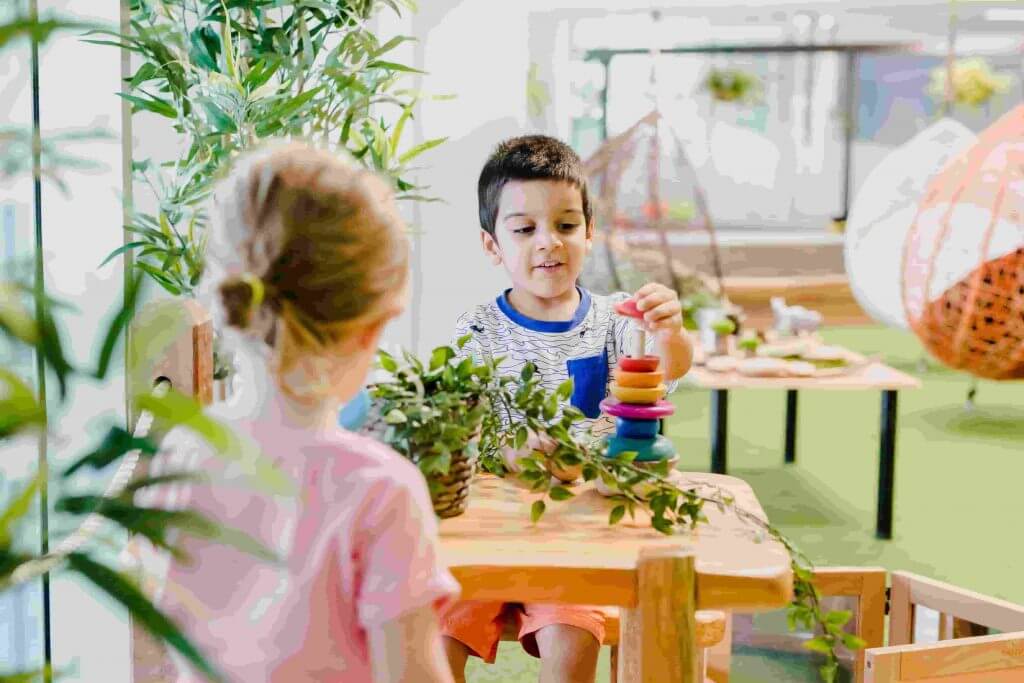
Good early learning and pre-school programs encourage babies and toddlers to become active participants in the world around them. A kindergarten program school transition that follows a set of academic standards, supported by carefully chosen resources and highly-trained staff, has statistically demonstrated increased levels of numeracy and literacy by the time children reach formal schooling. Early childhood care that is lovingly and thoughtfully crafted to ensure best possible outcomes for children provides them with a stepping stone into their primary school education (and beyond) that may not be possible if they were taught purely in a home environment.
”{Childcare} offers long-lasting social, economic and academic benefits for kids and their parents. Studies have shown that children, including babies and infants from the ages of 6 months to 4 years, benefit from the {childcare} environment, including its quality instruction, structure and social lessons.”
– 6 Benefits of Daycare for Young Children, The Childcare Advantage.
Not only is child development enhanced by attending childcare but securing children into an excellent childcare and kindergarten environment can also increase the social support network for parents themselves. The ability to speak to, empathise and make connections with like-minded parents not only provides children with weekend play-date opportunities but the parents themselves are given a much-needed social lifeline.
The Raising Children Network offers parents a glimpse at typical child development milestones. As with any resource, these should be read as a guide instead of a prescriptive map of behaviour.
Many of these milestones can be developed at a greater rate by engagement with highly trained childcare professional educators supported by an innovative and exciting early years learning program. Little Scholars prides itself on delivering the utmost care to the young people who attend its centres across South-East Queensland.
Babies will be encouraged to develop their movement, vision, speech and language and social behaviour through a gentle, compassionate early years program.
Toddlers will work on their emotional development under the watchful eye of trained educators. Their speech development, cognitive leaps and play-based learning will be encouraged through a curriculum designed to promote each child’s abilities.
Children embarking on their kindergarten program will be presented with a range of activities, including key extra-curricular involvement, that will allow them to be learners who question and interact with the world around them rather than passive engagement.
If you’d like to know more about how Little Scholars benefits child development and learning, book a tour today to see our unique curriculum in action.
At Little Scholars School of Early Learning, we’re dedicated to shaping bright futures and instilling a lifelong passion for learning. With our strategically located childcare centres in Brisbane and the Gold Coast, we provide tailored educational experiences designed to foster your child’s holistic development.
Let us hold your hand and help looking for a child care centre. Leave your details with us and we’ll be in contact to arrange a time for a ‘Campus Tour’ and we will answer any questions you might have!
"*" indicates required fields